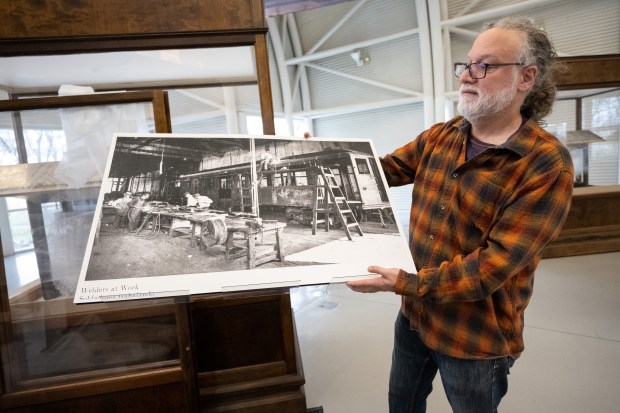Workers carefully removed the packaging from the display cases, slowly revealing each element of the exhibit Calumet Voices: National Stories at the Indiana Welcome Center in Hammond.
The men are preparing for the April 19 opening day of the five-month run of the exhibit, which is open during Welcome Center hours and free to the public.
For Bob Meyer, president of the Northwest Indiana Steel Heritage Project, one of the men unpacking the crates and setting up exhibit cases, steel is more than just the region’s heritage, it is his family’s heritage.
Four generations of Meyer’s family have worked in the mills, starting with his great-grandfather at Inland Steel in 1913. Today, the fifth generation stands poised to join the ranks as they complete the hiring process at Cleveland Cliffs. The hiring call came just last week.
Meyer gets to share both that regional and personal history through Calumet Voices, National Stories, an exhibit developed by the Field Museum of Chicago in collaboration with the Calumet Heritage Area. The exhibit will be open to the public April 19 at the South Shore Convention and Visitors Center in Hammond.
Mario Longoni, lead environmental social scientist in the Keller Science Action Center at The Field Museum in Chicago, was leading the unpacking. He said the exhibit brings together 19 local museums from across the Calumet area to share the stories that forged the region from rolled steel to rattlesnakes.
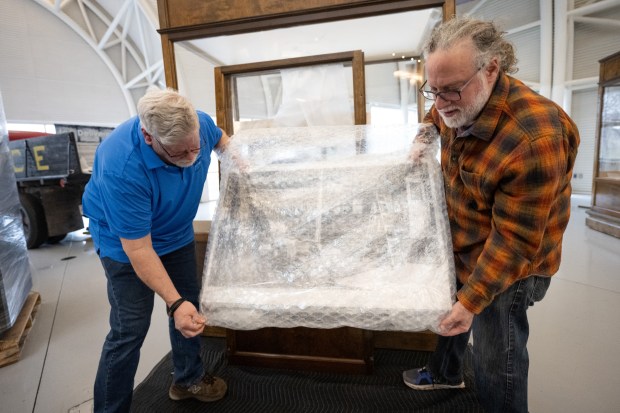
“The real truth is, I’ve spent the last 20 years working with community groups helping them to figure out how to use their cultural and ecological assets to address the concerns they have. So like how do we get people to think of the Calumet Region as something other than the Rust Belt,” Longini said.
The traveling exhibit started with two cases in Pullman. Additional cases were added when the exhibit moved to the Gary Public Library, and more still when it was on display at the Porter County Museum. After Porter County, Longoni said the exhibit was large enough to be displayed at the Field Museum.
Additional elements also have been added to the exhibit for its run at the South Shore Convention and Visitors Authority. One such element is the Taylor Ice truck on loan from the Museum at Lassen’s Resort, which is run by the Cedar Lake Historical Association.
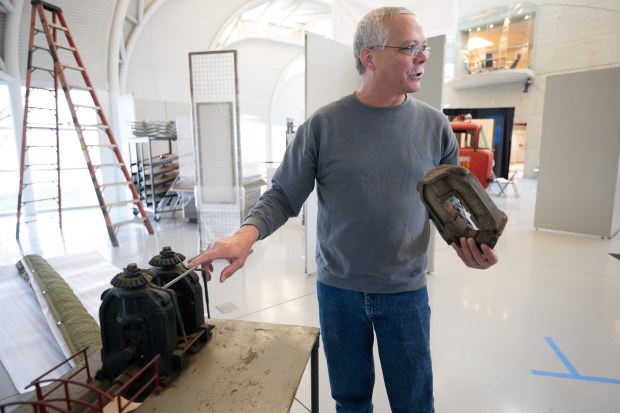
The exhibit features rare glimpses at the Region’s story, including a plate made by women working in the steel mill during World War II. Workers from Cleveland Cliffs are in the process of fabricating a special stand for the exhibit hall.
The large steel plate bears the names of some of the female welders, with the inscription “Thelma & Stella, June 4, 1943.” It was recently discovered at the mill, literally underfoot. The plate was covering a gap in the floor in an employee area and was walked on daily.
After the plate was found, Longoni said they contacted the Rosie the Riveter Museum to gauge interest. The museum said it would be better shared as a piece of local history, which prompted the piece to become part of the exhibit.
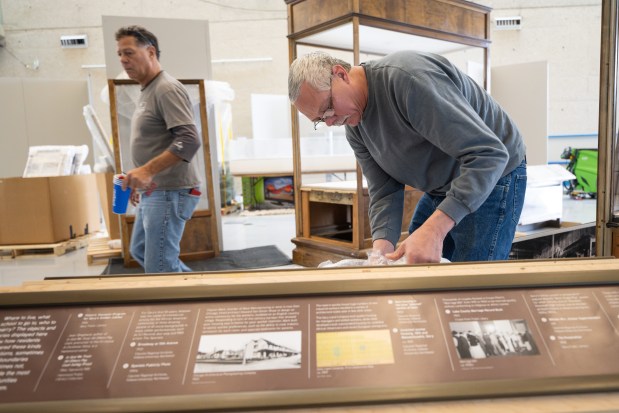
The SSCVA is the exhibit’s fifth, and most likely, final full showing. Longini said the 19 small historical societies that provided their pieces to the exhibit will have to get together and decide what will happen next. Many of the partners do not have the space to display the entire exhibit.
Black curtains covered the panels Friday at the SSCVA exhibition hall. Facility manager Jerry Tachik Jr. said they don’t want people to be able to see parts of the exhibit before it is fully unveiled.
Nikki Lopez, interim president and CEO of the SSCVA, said hosting the exhibit is an exciting opportunity.
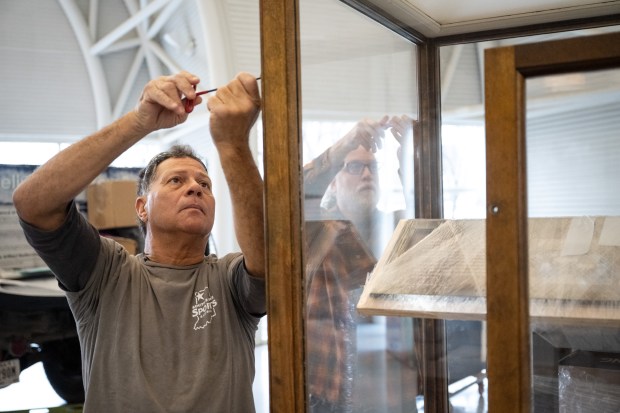
“It is such a cool exhibit. The amount of partners we have with this is just amazing,” Lopez said. The Field Museum is a great partner and is excited about the space, which is larger than the exhibit space at the museum. It will take about two weeks for the exhibit to be unpacked and set up.
“I’m very excited about this. It’s very relevant to the region,” Lopez said.
Partners contributing to the exhibit include the Blue Island Historical Society, Calumet Heritage Partnership, Calumet Regional Archives at Indiana University Northwest, Cedar Lake Historical Association and the Museum at Lassen’s Resort, Crown Point Community Library, The Field Museum, Gary Public Library and Cultural Center, Historic Pullman Foundation, Indiana Dunes National Park, Marktown Preservation Society, Northwest Indiana Steel Heritage Project and People for Community Recovery.
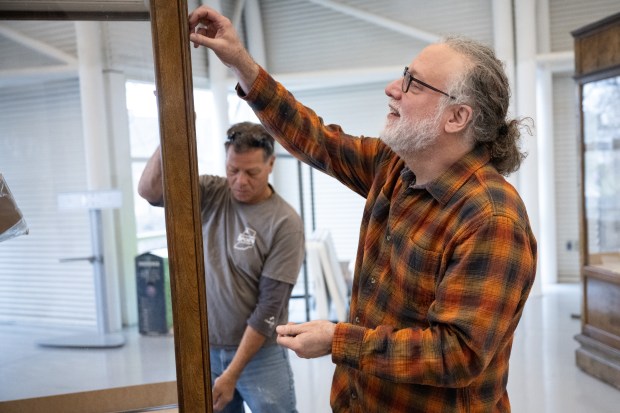
Additional partners are Porter County Museum, Pullman National Historic Park, Robbins Historical Society and Museum, Southeast Chicago History Museum, South Shore Convention and Visitors Authority, United Urban Network, the Department of Geography and Brauer Museum of Art at Valparaiso University, and Westchester Township History Museum. Individual contributors include Corey Hagelberg, James and Tracey Wetzstein and Alfonso “Nino” Quiroz Jr., and family.


